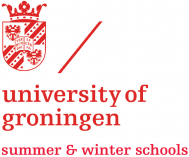26 July 2024
on course website
Financial Inclusion and Sustainable Growth
Over the past years, many low-income countries and emerging economies have undergone extensive financial reforms. Despite these reforms, many households and enterprises, especially in Africa, are still unable to participate in the financial sector. While it is well known that financial institutions and markets can help induce economic growth, it is much less clear how financial development can become inclusive and kick-start a process of sustainable economic growth with a positive effect on the poor.
This summer school will discuss the major developments regarding research on financial inclusion, including microfinance. It will shed much light on how financial inclusion can induce sustainable growth in low-income economies, with explicit attention to African countries.
Course leader
Prof. Robert Lensink (University of Groningen)
Target group
This summer school is designed for Master’s (Research or Professional), PhD students, Postdocs and alumni.
Academic Requirement
A minimum grade of 3 out of 4.33 or equivalent is required.
Language Requirement
The Summer School on Financial Inclusion and Sustainable Growth is taught entirely in English, and students come from many different countries. In order to fully benefit from the experience, both academically and socially, a minimum level of English proficiency must be met upon registration. Students for whom English is not their first language must obtain at least the minimum score required on any of the following tests. An attestation from the home institution that the students have met the English proficiency requirement will also be accepted.
Course aim
Learning Outcomes Knowledge and Understanding
– Gain an in-depth understanding of the theoretical underpinnings of financial inclusion and sustainable economic growth.
– Condict an in-depth study of theories on financial innovation, cross-border banking and its relation to economic development.
– Increase your knowledge about the theory and practice of impact analyses in developing countries.
Skills and Abilities
– Learn how to design randomized experiments to measure the impacts of financial inclusion interventions.
– Learn how to evaluate the inclusivity of financial products and build frameworks for designing inclusive financial products.
Judgment and Approach
– Study the concept of financial inclusion and its role in economic growth.
– Analyze financial interventions, designs, innovations, and market types in relation to the growth and development of developing countries.
Credits info
3 EC
Workload
Upon successful completion of the programme, the Summer School offers a Certificate of Attendance that mentions the workload of 84 hours (28 hours corresponds to 1 ECTS). Students can apply for recognition of these credits to the relevant authorities in their home institutions, therefore the final decision on awarding credits is at the discretion of their home institutions. We will be happy to provide any necessary information that might be requested in addition to the certificate of attendance.
Fee info
EUR 1300: for exchange basis students (partner universities using their balance)
Price in Can$
EUR 1600: for tuition basis students (non-partner universities or universities not using their balance)
Price in Can$
on course website

